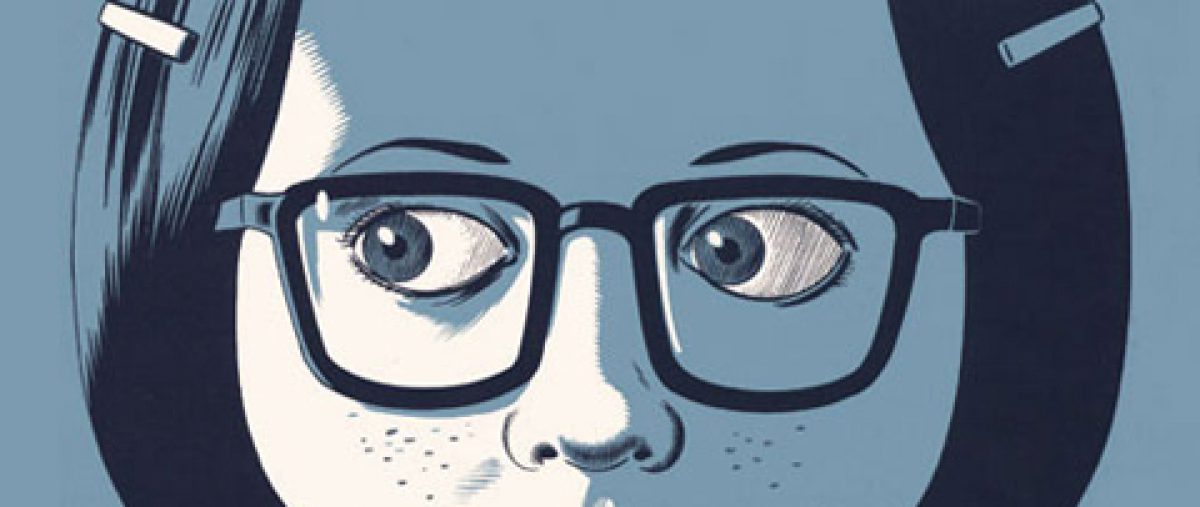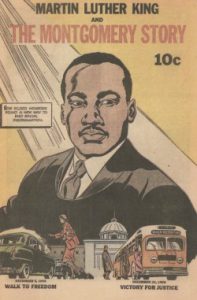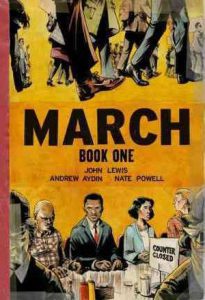Originally published on GoshenCommons.org November 25, 2013
(UPDATE: The March trilogy is complete! Here’s what Book Three looks like, and you can get all three in a boxed set.)
Most of the comics I’ve reviewed in this blog have been for entertainment, but the history of comics is also closely tied with education. Comics versions of literary classics and the Bible, for example, have been created for audiences disinclined to sit down and read a book.
This sometime association of comics with educational purpose is part of why the genre is often dismissed by artists and art critics who consider any predetermined goal or meaning a corruptive influence on art. As high Modernist poet Archibald MacLeish famously put it in “Ars Poetica,” “A poem should not mean / But be.” Art in its “pure” state is (supposedly) objective, devoid of any specific point or purpose beyond artistic “expression.”
Plenty of comics—perhaps the majority—aim to tell good stories rather than communicate a particular purpose, but the history of comics with more specific political goals is just as rich and fascinating. One such artifact from the Civil Rights era is a comic produced in 1958 by the Fellowship of Reconciliation, or FOR.
“Martin Luther King and the Montgomery Story” was designed to teach the fast-growing ranks of nonviolent protesters about the bus boycott in Montgomery, Ala., the site of Rosa Parks’s famous protest, and also to educate them in the most effective methods for continuing the practice in other locations.
Congressman John Lewis, one of the most prominent surviving figures from the Civil Rights movement, was inspired by the 1958 comic book, and was convinced by his comics-nerd staffer, now co-writer, Andrew Aydin, to tell his own story in comic-book form. The result is “March: Book One,” the first of a projected trilogy.
Continue reading “March: Comics, Civil Rights and the Story of Congressman John Lewis”


